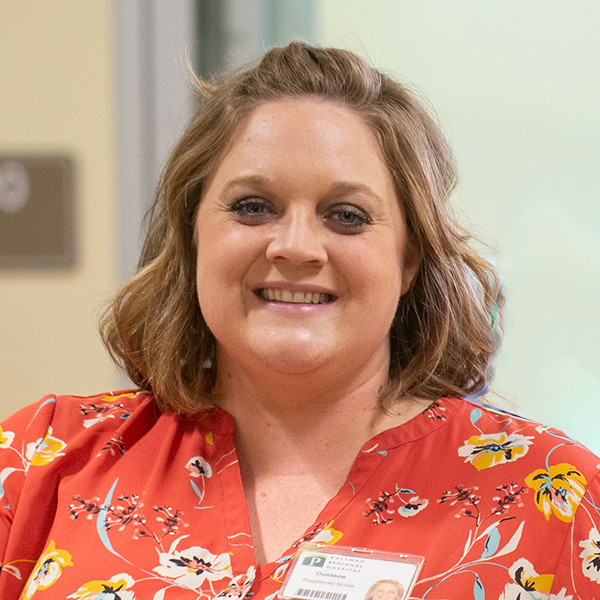In days past, a surgery involved an extended recovery… weeks off work and oftentimes a painful path to normalcy. Now, many surgeries are able to be performed as outpatient procedures—sending patients home the same day.
Dustene Johnston, Director for Pullman Regional Hospital Same-Day Services Department, explains the different types of procedures the surgical department covers—as well as what the department does as a whole.
“In same-day, we offer a lot of services to our patients, including a preoperative specialized registered nurse area with RNs who conduct history and physical interviews, educate pre-procedure, and perform tests needed before surgery. After the patients are there, we then also admit and prepare patients for their procedures and their surgeries,” she states.
The same-day department also includes:
1) Post anesthesia care unit (PACU). Specialized RNs provide critical care in the immediate post-surgery period. A phase two recovery allows patients to further get their bearings. Patients are discharged after they meet discharge criteria.
2) Endoscopy suite. RNs assist surgeons in performing upper endoscopies, colonoscopies, esophageal dilations, foreign body removal, and surveillance of gastrointestinal (GI) bleeds. Soon the unit will be offering pH monitoring using the Bravo system.
“The RNs who work in endoscopy have very specialized knowledge that encompasses all aspects of endoscopy, including anatomy and physiology of the GI tract and specialized equipment expertise. We also recently upgraded to the newest Fujinon endoscopy equipment, giving our providers even better technology to use while performing these procedures,” shares Johnston.
3) Infusion and transfusion services. “We administer a large range of treatments in this area on a daily basis. And, we run a pain management clinic through same-day in collaboration with Pullman Anesthesia Associates, who are the CRNAs who provide anesthesia services at Pullman Regional Hospital,” explains Johnston.
4) Cardioversions and transesophogeal echocardiograms. These procedures are performed by Dr. David Jones of Palouse Heart Center.
Finally, the RNs in the same-day department provide the majority of the procedural sedation for scheduled cases within the hospital. “All the RNs in same-day are currently undergoing a procedural sedation certification,” adds Johnston.
Optimizing the Patient Experience
Typically, patients are scheduled via their surgeon’s office—approximately one-to-three weeks prior to their case. Patients receive a call prior to the surgery to go over their health history and so the surgical unit can gather records from contributing offices (e.g. primary care provider, cardiologist). During this interaction, Johnston’s team educates patients on what they need to do the night before surgery and the day of their surgery.
Sometimes, the surgeon requests that this conversation is conducted in person, rather than over the phone. “For those cases, we see them at same-day and educate, do tests such as EKGs or blood work. Then, they’ll often see other providers such as pharmacists, anesthesia providers, or hospitalists,” notes Johnston.
When patients arrive for their procedure, they’re directed to the registration section. This is a brief interaction before heading to the admitting room, where both CNAs and the admitting RN will continue to provide information and conduct preoperative tasks. Directly before patients proceed to the operating room, the surgeon meets with them to answer any last minute questions.
After surgery, the patient wakes up in the PACU with one of the same-day RNs at their side. This RN manages the patient's care for the immediate post-op period. “Often, patients only remember bits and pieces of this time in PACU, because they're really just starting to emerge from their anesthesia,” explains Johnston.
Once the patient meets PACU discharge criteria, they are then transferred back to the same-day department if they're an outpatient or to the medical surgical unit if they require an overnight stay. “If they are back in same-day, the patient will be able to see their loved ones again,” says Johnston. “They'll go through some discharge criteria, get to eat something, get their pain under control, get some fluids, and then they'll get to go home.”
Putting Patient Comfort Front and Center
It’s common for patients to be nervous before surgery. The fear of the “unknown” and just being in an unfamiliar environment can leave them feeling vulnerable. All staff members of the same-day department do everything they can to bring comfort to patients—and provide them with as much information as appropriate to make the process more palatable.
“Knowledge is power, and the more the patient understands the process, the more comfortable they'll feel. Additionally, our admitting RNs work to develop a level of trust with our patients. They are really the patient advocate in the preoperative environment and are there to make our patients comfortable. Sometimes that comes in the form of a warm blanket. Sometimes it’s someone holding your hand, or just giving the patient a few minutes alone to process,” assures Johnston. “Those of us who work in same-day are comfortable in this environment. We just want our patients to feel as comfortable as we are.”
You may also be interested in:
